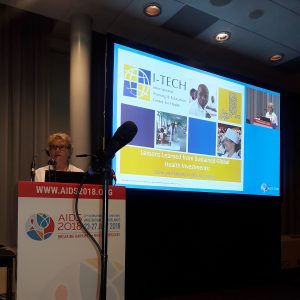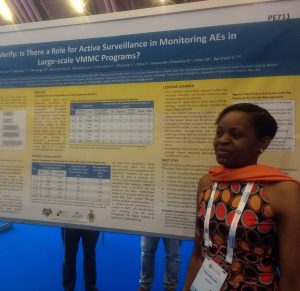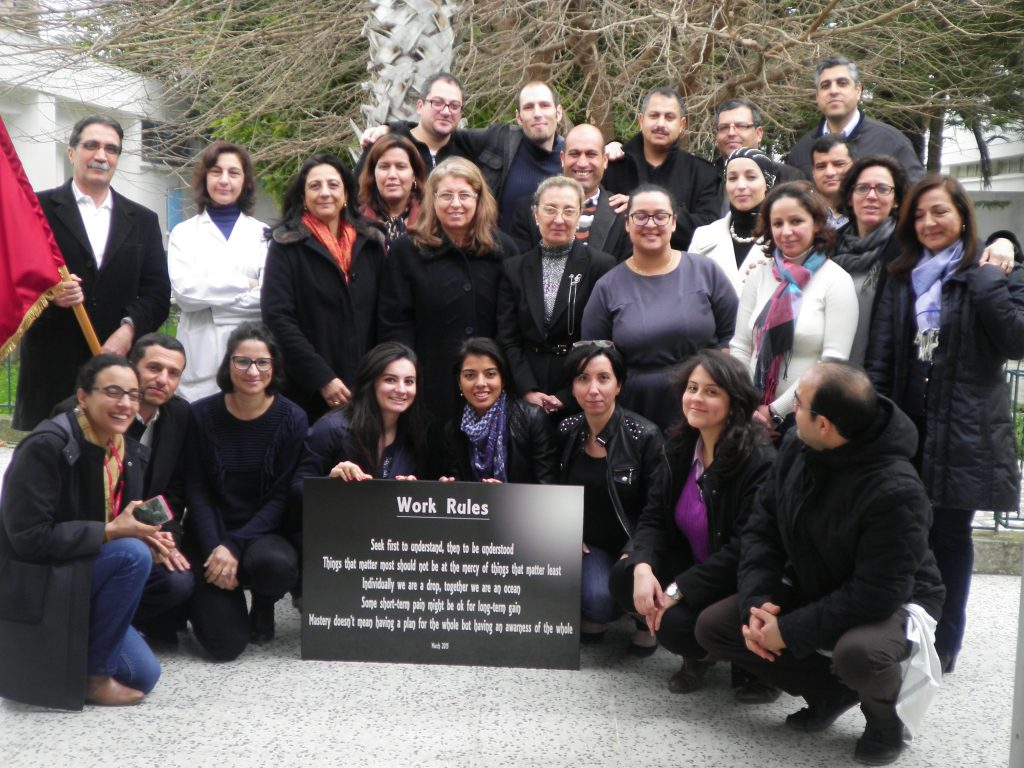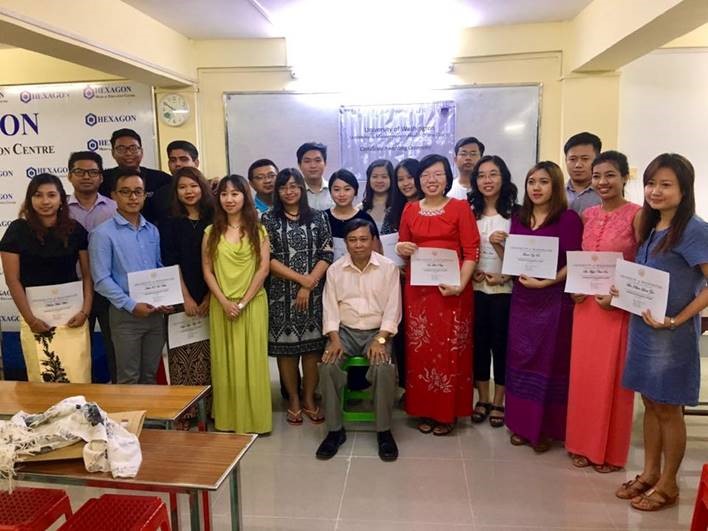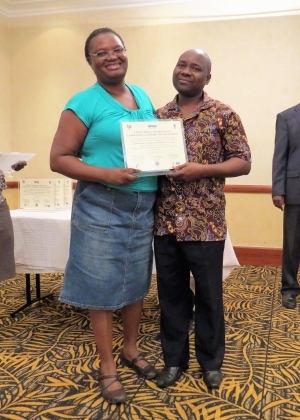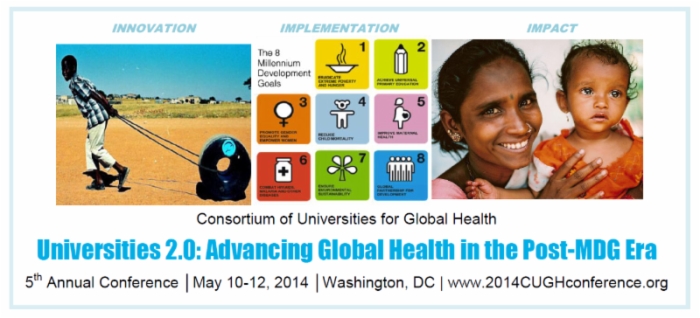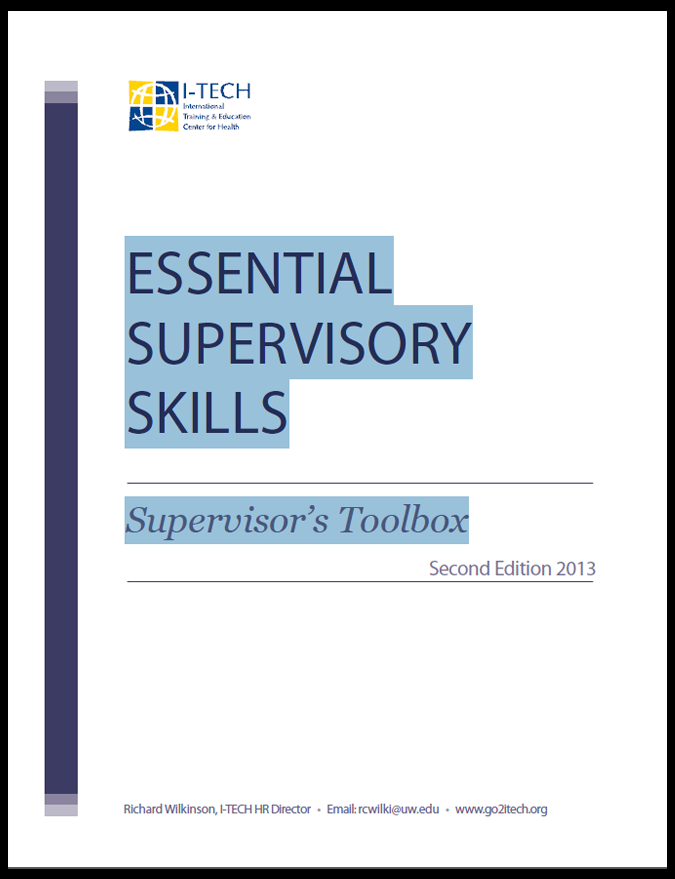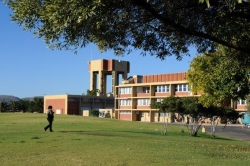
UNAM School of Nursing Science and Public Health
Despite a decrease in the estimated annual HIV/AIDS incidence since 2001, HIV/AIDS remains a significant source of morbidity and mortality in Namibia.[1]
In 2008, the International Training and Education Center for Health (I-TECH) at the University of Washington (UW) was invited to conduct a rapid assessment of the University of Namibia (UNAM) master’s degree program in public health, with the goal of identifying ways to strengthen UNAM’s School of Nursing Science and Public Health. Dr. Virginia Gonzales, Senior Lecturer in the UW’s Department of Global Health and Senior Technical Specialist with I-TECH, led that study along with Lee Pyne-Mercier, UW Affiliate Instructor and former I-TECH Country Program Manager.
New award based on study findings
Recommendations included the suggestion that UNAM attract lecturers from outside the university to strengthen teaching in subjects such as research methods, epidemiology, and biostatistics. Based on these and other findings from the assessment, UNAM and UW/I-TECH submitted a joint application to the US Centers for Disease Control and Prevention (CDC) and were awarded a five-year cooperative agreement in 2010, with Dr. Ann Downer, Executive Director of I-TECH, serving as principal investigator.
The goal of the agreement was to improve and enhance the UNAM School of Nursing Science and Public Health. Objectives for this project included:
- Plan for sustainability and transfer of resources to UNAM.
- Strengthen professional development and faculty support at UNAM.
- Strengthen content and delivery of the MPH program at UNAM.
- Improve research capacity and output of lecturers and students at UNAM.
- Strengthen institutional capacity and infrastructure for teaching public health at UNAM.
With this new award, I-TECH/UW and UNAM embarked upon a series of faculty partnerships. The group also began to explore how to separate the UNAM School of Nursing Science and Public Health into two programs, creating both a School of Nursing and a School of Public Health. The UNAM Senate issued a proclamation in 2014 that this would occur.
“The focus of curriculum [in the new School of Public Health] will be needs-driven,” says Dr. Käthe Hofnie Hoëbes, Associate Dean of the UNAM School of Nursing Science and Public Health, “and it will support new job growth in Namibia, as it promotes the creation of new cadres of public health specialization.”
From partnership comes growth
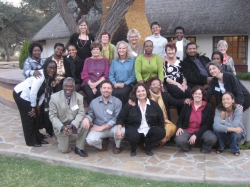
Retreat with UW and UNAM faculty, 2009
The CDC award has now come to an end; however, through this project, UW and UNAM created 16 strong faculty partnerships, all determined by the priorities of the UNAM faculty through a Public Health Working Group (PHWG).
“The benefit of working with the PHWG was one of the key takeaways from this project,” says Dr. Gonzales. “It ensured that UNAM was in the position to offer continual input, guide project activities, and truly lead the project.”
The faculty partnerships occurred in health policy, bioethics, nutrition, research, environmental health, and epidemiology, linking interested faculty at UW and UNAM. Through these relationships, UW faculty visited the main UNAM campus in Windhoek to facilitate workshops and review curriculum, and the UNAM faculty visited UW to observe classes and work on curriculum revision.
As a result of the trust among faculty at both universities, partnerships evolved in unexpected areas as well, including social work, nursing, medicine, pharmacy, teaching technologies, and with the Namibian Ministry of Health and Social Services’ (MOHSS) Primary Health Care Program.
“Working in partnership was a cross fertilizing, fulfilling and enriching exercise for all of us who were involved,” says Magdaleena Nghatanga, former Director of the Directorate of Primary Health Care, MOHSS. “Across the ocean we shared experiences and professional expertise. Utilizing technology such as Skype, Dropbox, and e-learning helped the team in developing and revising the curriculum, as well as in building and improving teaching at the university level. As a result, the Primary Health Care Program and curriculum were revised and updated, and the students were thrilled with the new lectures.”
Outcomes echo throughout the country
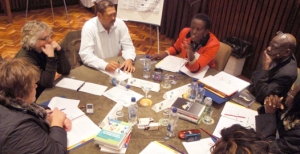
Leaders in Health–Namibia! working group, 2010
The collaboration also focused attention on teaching skills, and evaluations of faculty by students at UNAM improved considerably. In addition, UNAM graduates reported improved skills and knowledge in HIV/AIDS, nutrition, health policy, epidimiology, and research and increased knowledge of and interest in public health. Thesis supervisors at UNAM reported greater skills in supervision and student mentoring, and UNAM lecturers reported increased knowledge, skills, and confidence in teaching course materials.[2]
The workshops offered on learning theory and teaching skills were later scaled to all of UNAM, including remote campuses. Several faculty also participated in the Leaders in Health – Namibia! (LIH) program that was designed by I-TECH/UW in collaboration with the MOHSS in order to strengthen the health care delivery system in Namibia through effective mentoring of health leaders and managers. The UNAM faculty who participated in LIH later improved course content on leadership and management at UNAM by using material and content from LIH.
“This partnership has yielded benefits on many fronts,” says Dean Hofnie Hoëbes. “Lines of collaboration have been initiated with other world-class universities, and technical support was provided for the roadmap for establishing a standalone School of Public Health. This will benefit the nation as a whole by supporting public health care in the country and preparing a larger, professional workforce with specialized skills to address shortages in public health practitioners in Namibia.”
_________________
[1] Namibia Global Health Initiative, 2011-2015/16.
[2] University of Namibia and I-TECH Namibia. Evaluation of the Impact of the UNAM/I-TECH Collaboration upon the Master of Public Health Program, 2009-2012. 2013.

